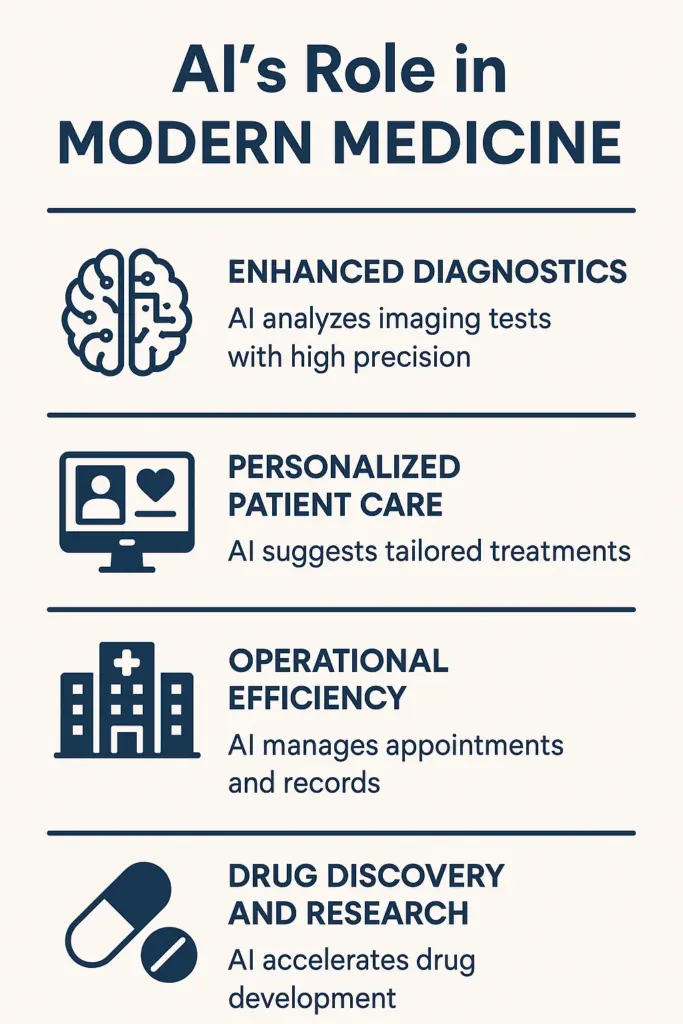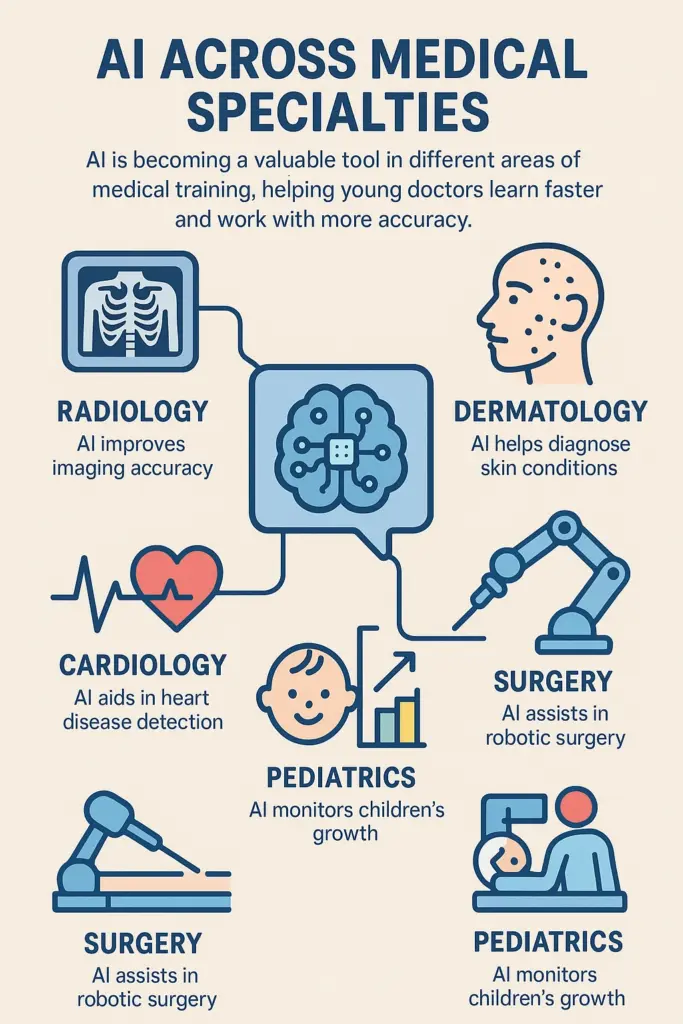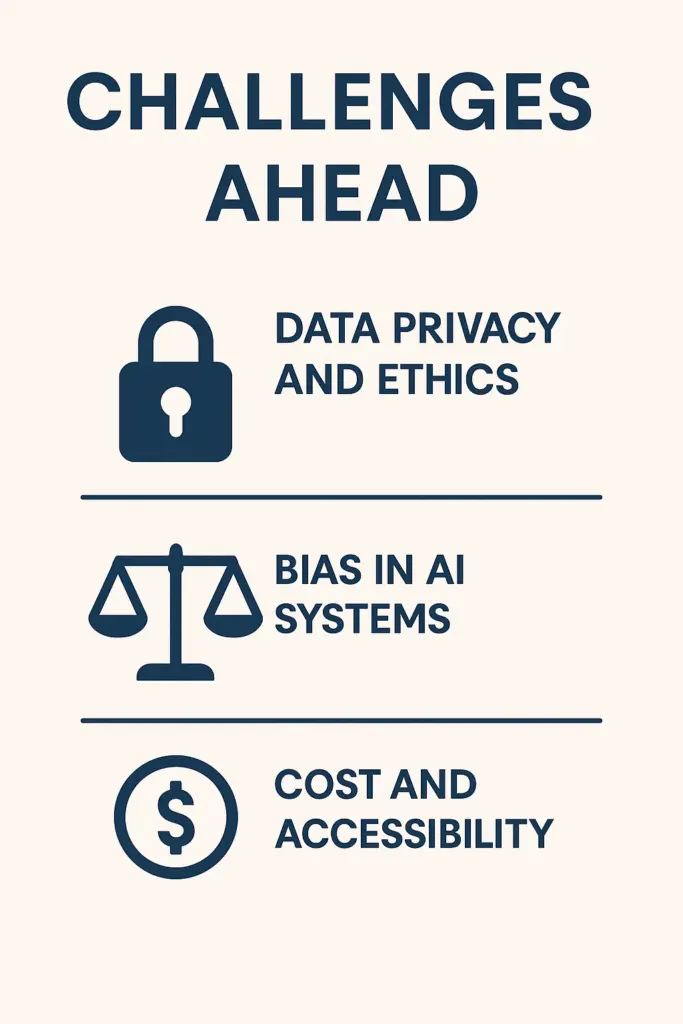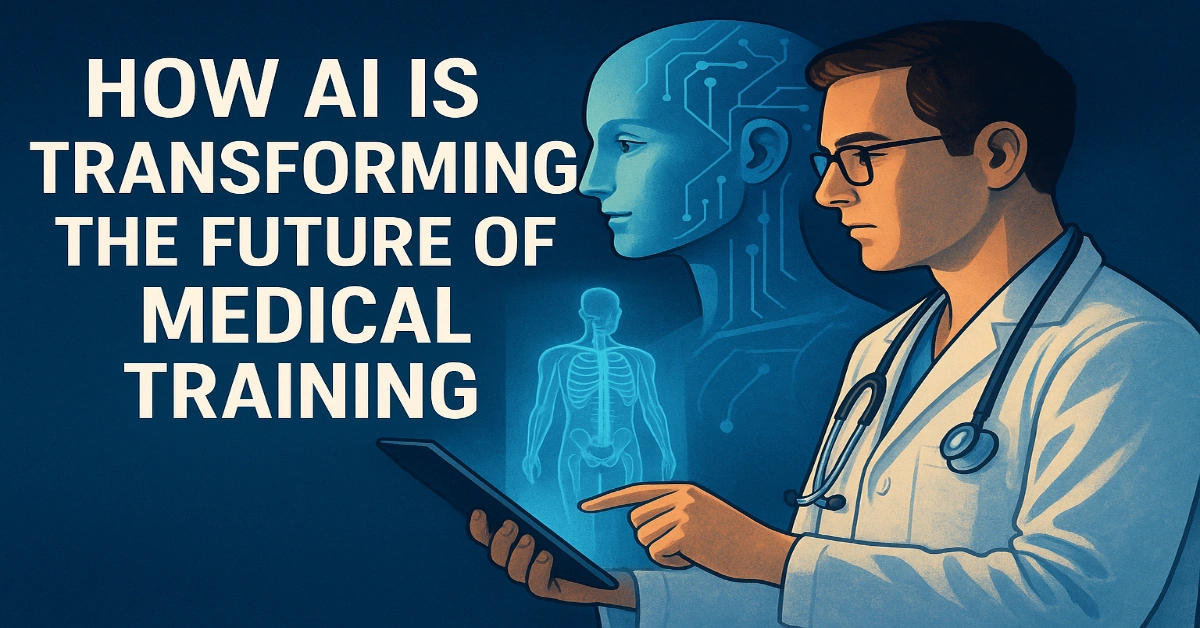Artificial Intelligence (AI) is changing the way doctors learn and train. It is helping students study better, practice with virtual patients, and use smart tools in hospitals. From reading scans in radiology to assisting in surgeries and even diagnosing skin problems in dermatology, AI is becoming a helpful guide in shaping the doctors of the future.
AI’s Role in Modern Medicine

1. Enhanced Diagnostics
AI algorithms can analyze imaging tests such as X-rays, MRIs, and CT scans with high precision. Future NEET PG specialists in radiology, pathology, or cardiology will rely on AI-assisted tools to make faster and more accurate decisions.
2. Personalized Patient Care
AI models process patient histories and lab data to suggest tailored treatments, which is crucial for MD/MS aspirants focusing on specialties like internal medicine or paediatrics.
3. Operational Efficiency
Hospitals increasingly use AI to manage appointments, electronic medical records, and resource allocation. NEET PG graduates entering administration roles will benefit from understanding these technologies.
5. Drug Discovery and Research
AI accelerates research by predicting drug interactions and outcomes. NEET PG aspirants interested in pharmacology or medical research can leverage AI for innovative studies.
AI Across Medical Specialties

AI is becoming a valuable tool in different areas of medical training, helping young doctors learn faster and work with more accuracy.
Radiology
AI acts like an extra pair of eyes, spotting tiny changes in CT scans, MRIs, and X-rays that even experienced doctors may miss. This improves accuracy and builds confidence.
Dermatology
AI tools compare skin lesions with large image libraries, helping in the diagnosis of conditions like melanoma, eczema, and psoriasis. It sharpens clinical skills while leaving final decisions to the doctor.
| NEET PG Counselling Guide 2025 | |
|---|---|
| MCC NEET PG Counselling Guide eBook 2025 | 📥 Download |
| DNB Counselling Book 2025 | 📥 Download |
Cardiology
AI-powered ECG and imaging systems predict arrhythmias and detect early signs of heart disease, training cardiology students to make quicker, evidence-based decisions.
Surgery
Robot-assisted surgery guided by AI allows precise cuts and sutures. Observing and practicing with these systems teaches surgical students to balance technology with human judgment.
Paediatrics
AI tracks growth charts, vaccination schedules, and developmental milestones, helping paediatric trainees spot health issues early while still providing compassionate care.
Challenges Ahead
While AI offers immense potential, NEET PG aspirants and future doctors must be aware of limitations:

- Data Privacy and Ethics: Handling sensitive medical data responsibly is crucial.
- Bias in AI Systems: AI tools must be critically evaluated to avoid diagnostic or treatment errors.
- Cost and Accessibility: Not all healthcare facilities may have AI infrastructure, especially in rural or government hospitals.
NEET PG 2025 aspirants are preparing for a career in a transforming healthcare landscape. Understanding AI’s applications not only enhances exam readiness in subjects like pharmacology and pathology but also equips future specialists to embrace technology-driven patient care. Doctors who combine clinical expertise with AI literacy are likely to lead the next generation of healthcare innovation.
Read Also: NEET PG 2025 Counselling Trends: What Aspirants Should Know
Read Also: High-Demand vs Low-Demand MD/MS Specialties: What Students Should Know

